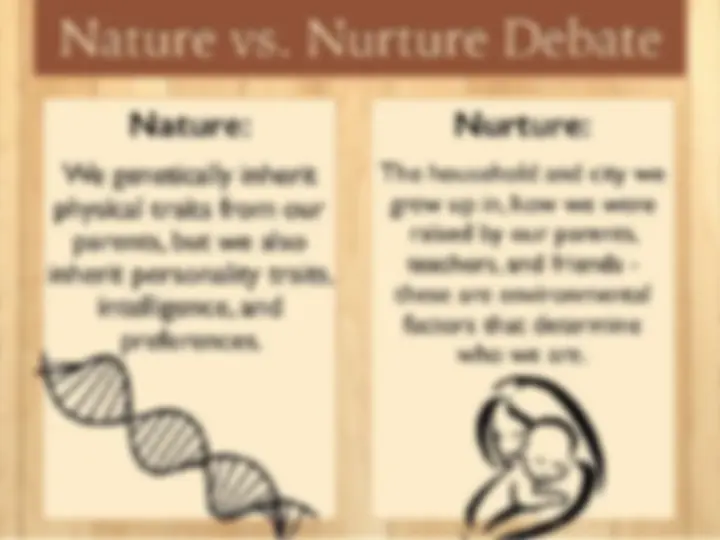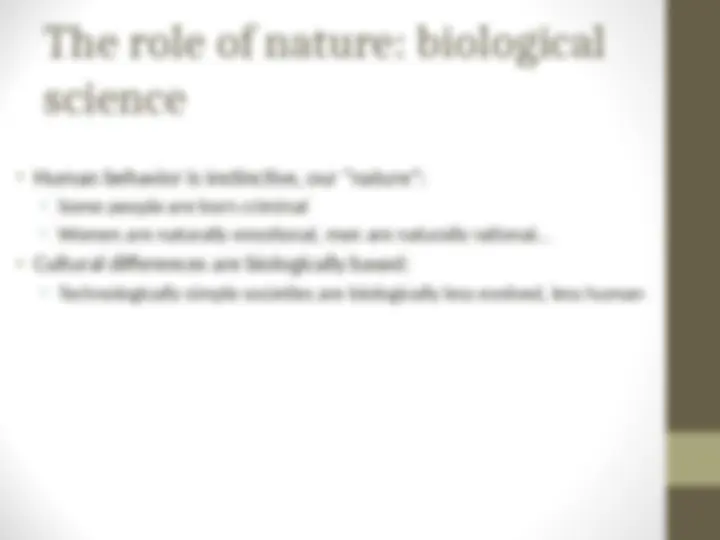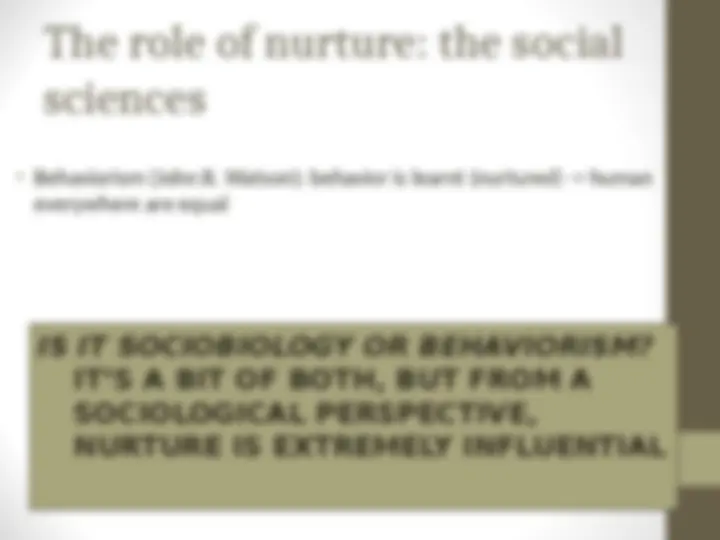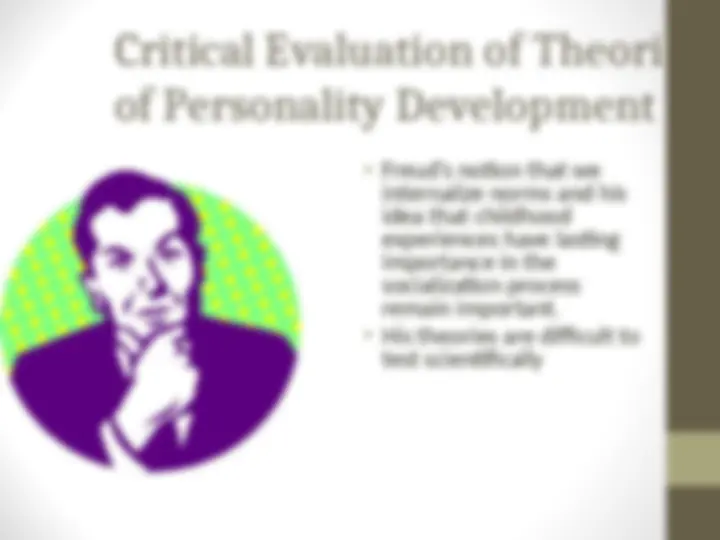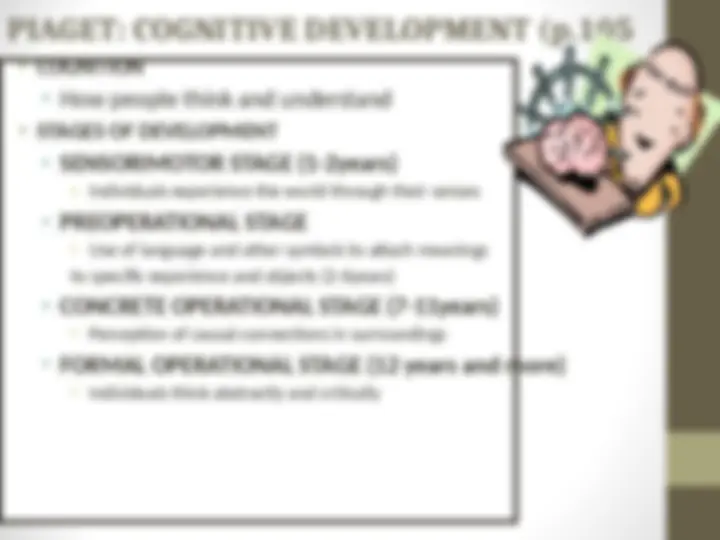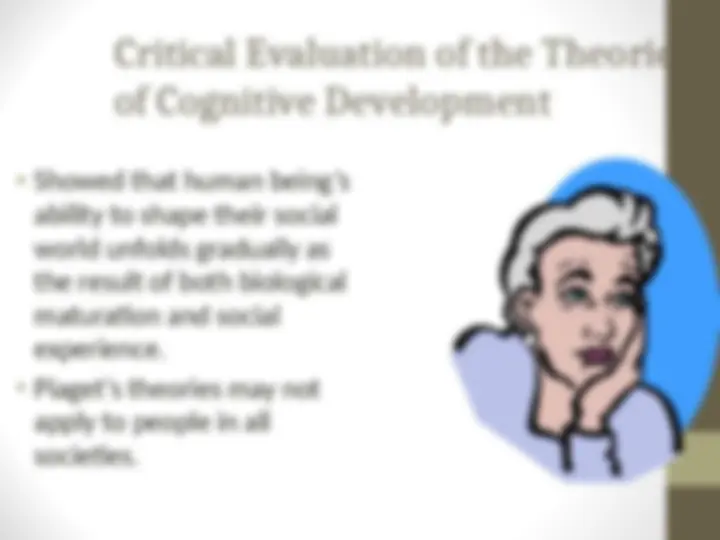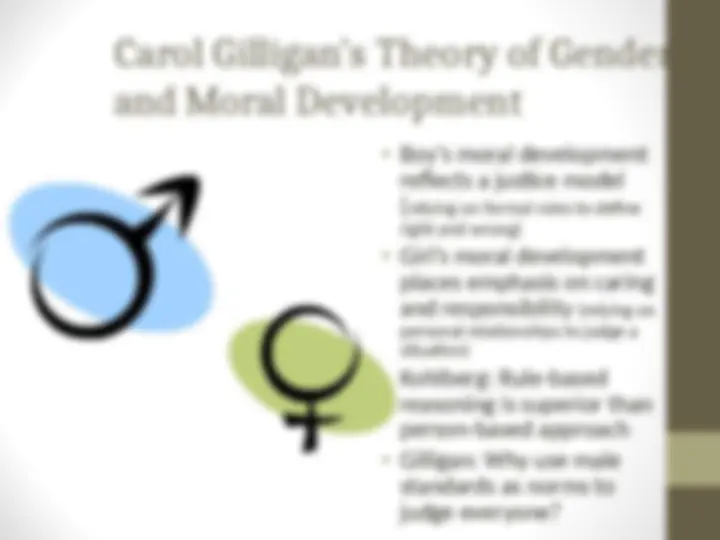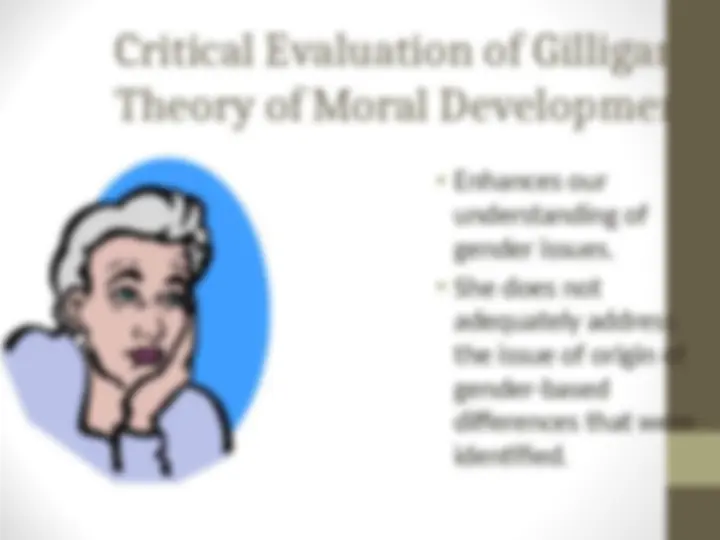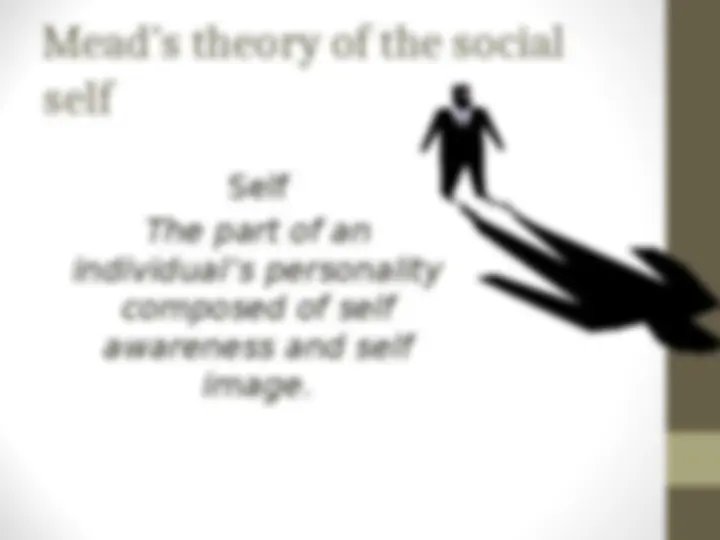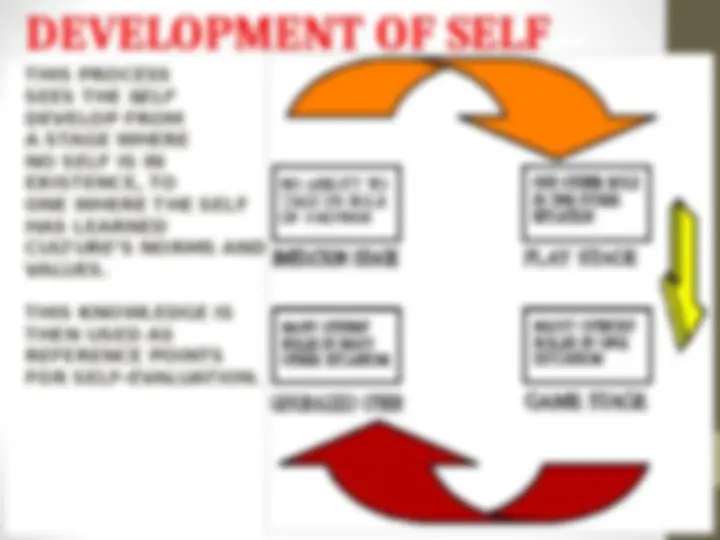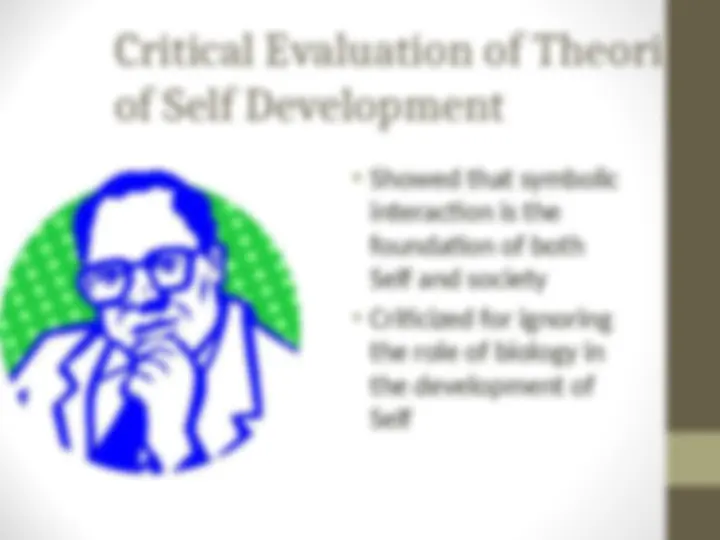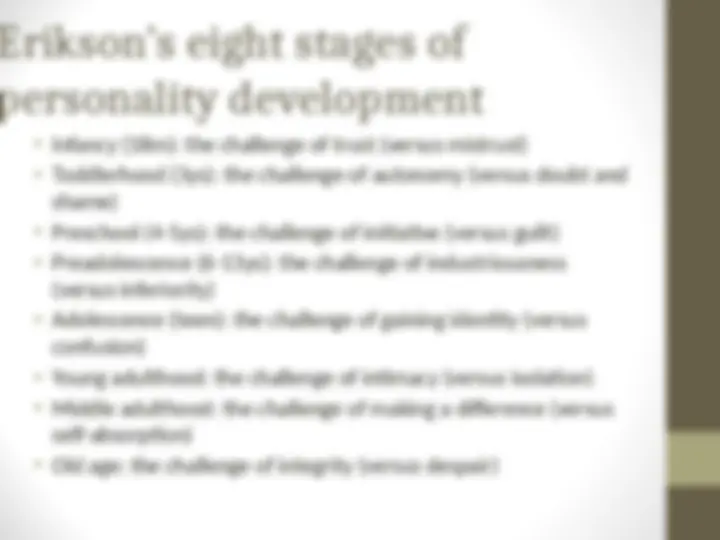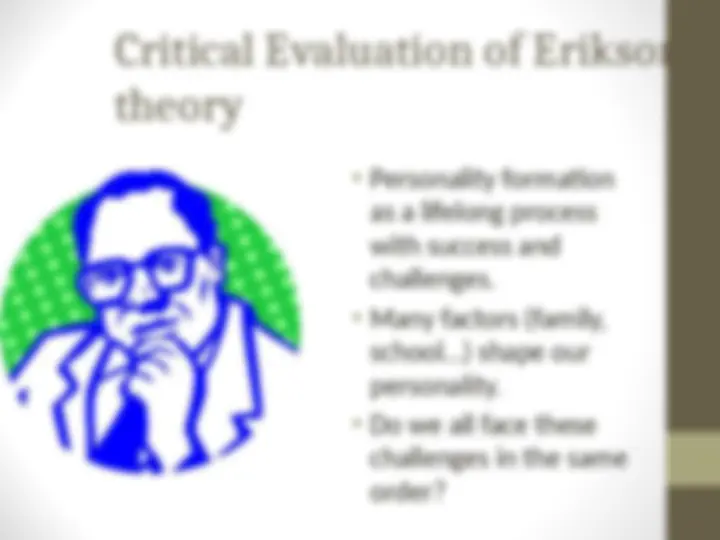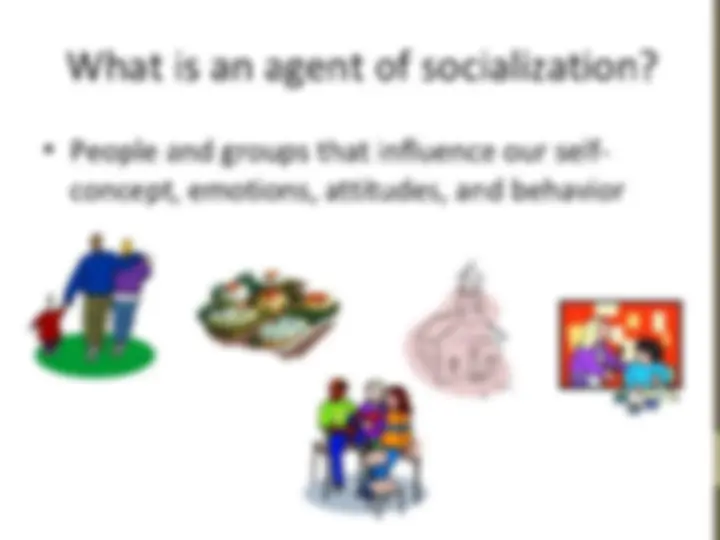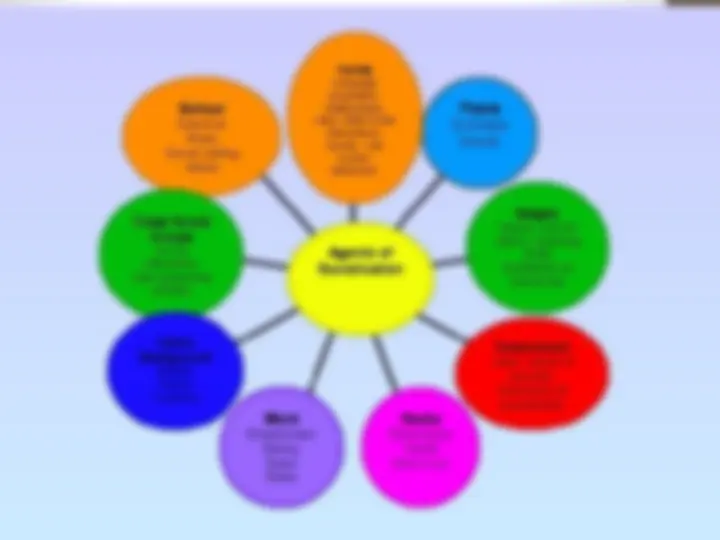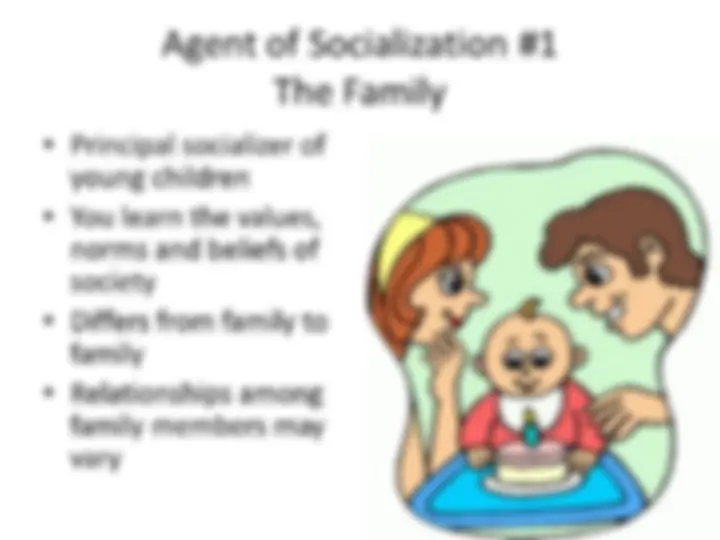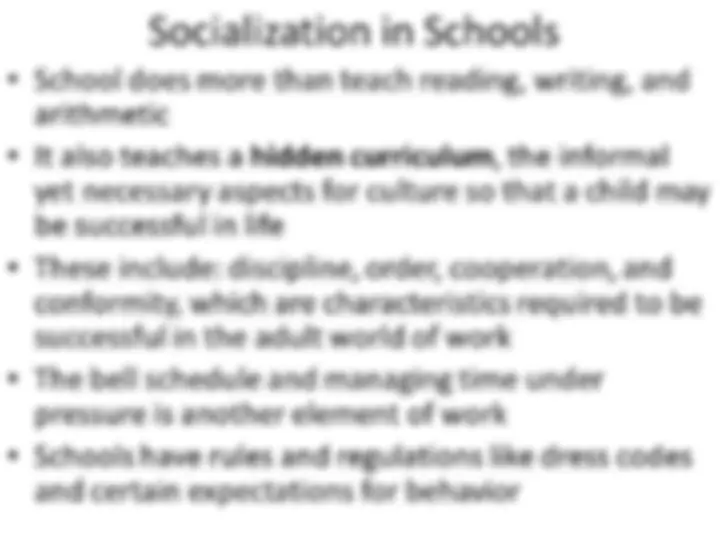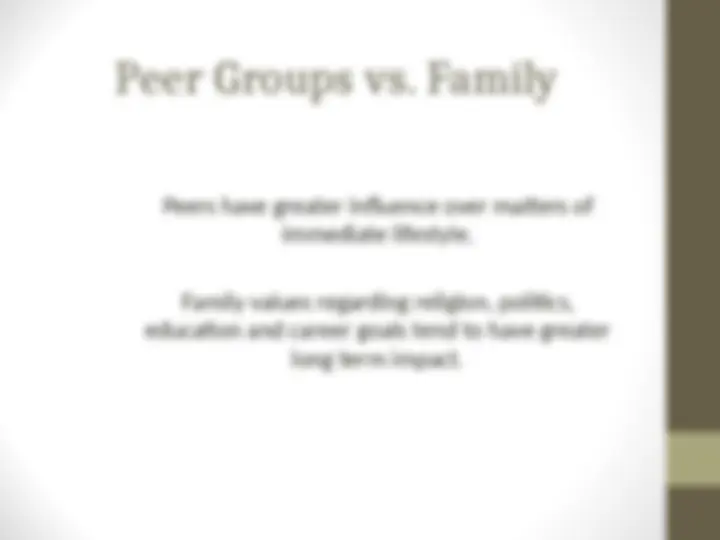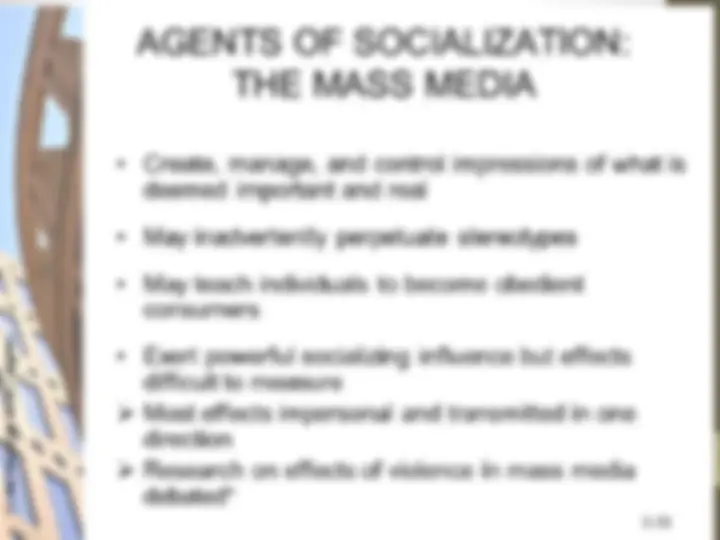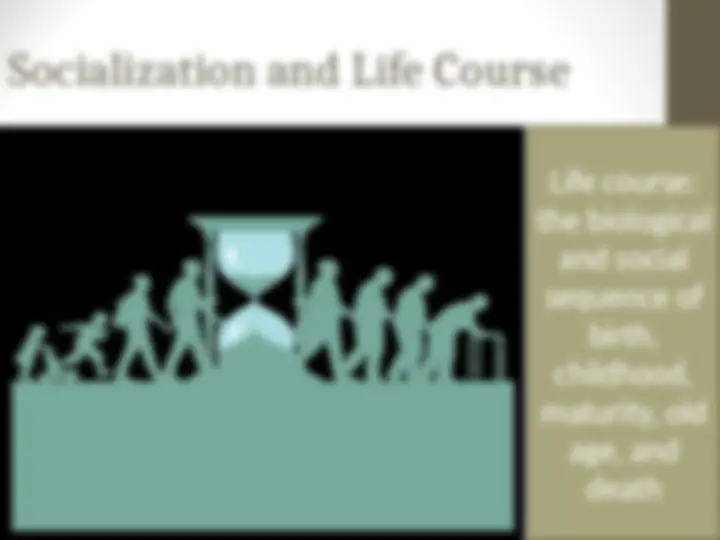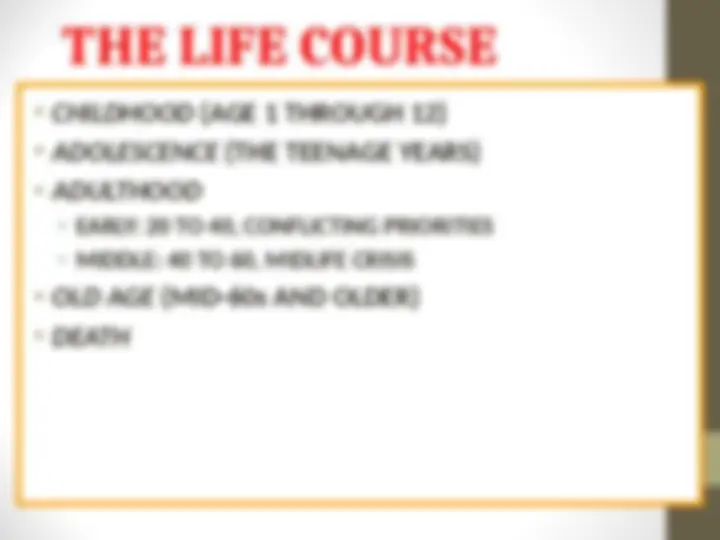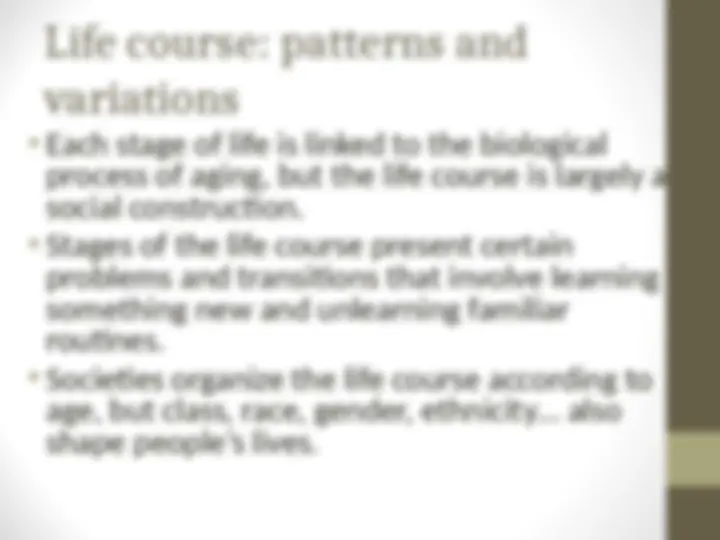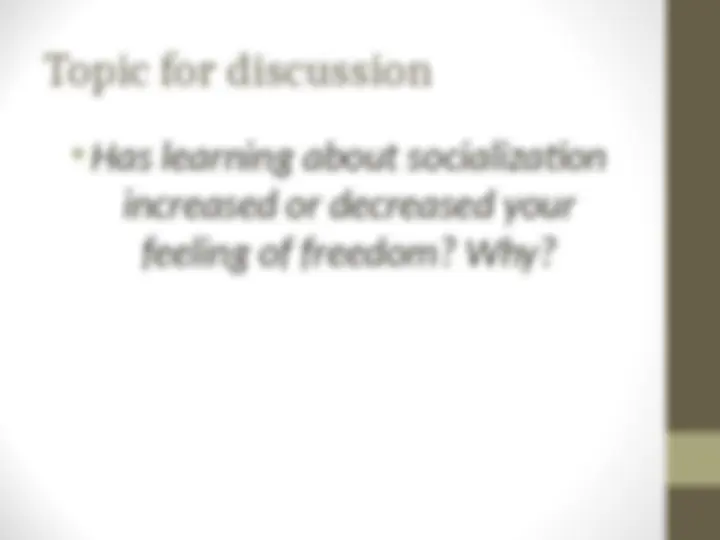Download Socialization: The Key to Human Personality Development and more Slides Sociology in PDF only on Docsity!
Socialization
Lecture 7
Objectives After learning this chapter, you should be able to :
- (^) Define socialization.
- Discuss why social experience is the key to human personality.
- Describe what familiar social settings have special importance to human development.
- (^) Understand how people’s experience change over the life course.
- Evaluate the contributions of six important thinkers to our understanding of the socialization process.
The role of nature: biological science
- (^) Human behavior is instinctive, our “nature”:
- (^) Some people are born criminal
- (^) Women are naturally emotional, men are naturally rational…
- (^) Cultural differences are biologically based:
- (^) Technologically simple societies are biologically less evolved, less human
The role of nurture: the social sciences
- (^) Behaviorism (John B. Watson): behavior is learnt (nurtured) -> human everywhere are equal
IS IT SOCIOBIOLOGY OR BEHAVIORISM?
IT’S A BIT OF BOTH, BUT FROM A
SOCIOLOGICAL PERSPECTIVE,
NURTURE IS EXTREMELY INFLUENTIAL
Understanding socialization: Freudian Model of Personality
Model of personality :
- (^) Id (human being’s basic needs)
- (^) Ego (efforts to balance innate pleasure-seeking drives with demands of society)
- (^) Superego (cultural values internalized by an individual)
■ Basic human needs/drives :
■ Eros : need for sexual and emotional bonding (life instinct) ■ Thanatos : aggressive drive (death instinct) ■ EROS AND THANATOS^ ARE OPPOSING FORCES MANAGED CONFLICT ID and SUPEREGO are in constant states of conflict, with EGO balancing the two.
Critical Evaluation of Theories of Personality Development
- (^) Freud’s notion that we internalize norms and his idea that childhood experiences have lasting importance in the socialization process remain important.
- (^) His theories are difficult to test scientifically
Critical Evaluation of the Theories of Cognitive Development
- (^) Showed that human being’s
ability to shape their social
world unfolds gradually as
the result of both biological
maturation and social
experience.
- (^) Piaget’s theories may not
apply to people in all
societies.
Kohlberg Theory of Moral Development (p. 106)
- (^) Moral development occurs in stages:
1.Preconventional Morality: “rightness” is what is good to a child
2. Conventional Morality: learn to define “right” and “wrong” in terms of what
pleases parents and conforms to cultural norms (teen years)
3. Postconventional Morality: move beyond society’s norms to consider
abstract ethical principles (liberty, freedom, justice…)
Carol Gilligan’s Theory of Gender and Moral Development
- (^) Boy’s moral development reflects a justice model (relying on formal rules to define right and wrong)
- (^) Girl’s moral development places emphasis on caring and responsibility (relying on personal relationships to judge a situation)
- (^) Kohlberg: Rule-based reasoning is superior than person-based approach
- (^) Gilligan: Why use male standards as norms to judge everyone?
Critical Evaluation of Gilligan’s Theory of Moral Development
understanding of
gender issues.
adequately address
the issue of origin of
gender-based
differences that were
identified.
- (^) THE SOCIAL SELF
- (^) SELF DEVELOPS FROM SOCIAL INTERACTION
- (^) SOCIAL EXPERIENCE IS THE EXCHANGE OF SYMBOLS
- (^) SEEKING MEANING LEADS PEOPLE TO IMAGINE OTHER PEOPLE’S INTENTION
- (^) UNDERSTANDING INTENSION REQUIRES IMAGINING THE SITUATION FROM THE OTHER’S POINT OF VIEWS
- (^) BY TAKING THE ROLE OF THE OTHER, WE BECOME SELF- AWARE.
- (^) Social interaction involves seeing ourselves as others see us - a process that Mead calls TAKING THE ROLE OF THE OTHER
THE LOOKING-GLASS SELF
- (^) CHARLES HORTON COOLEY
- (^) SELF-IMAGE IS MANIFESTED AS WE THINK OF HOW OTHERS WILL SEE US
- (^) WHAT WE THINK OF OURSELVES
DEPENDS ON LARGE PART ON
WHAT WE PERCEIVE OTHERS ARE
THINKING OF US
Critical Evaluation of Theories of Self Development
interaction is the
foundation of both
Self and society
- (^) Criticized for ignoring
the role of biology in
the development of
Self
Erikson’s eight stages of personality development
- (^) Infancy (18m): the challenge of trust (versus mistrust)
- (^) Toddlerhood (3ys): the challenge of autonomy (versus doubt and shame)
- (^) Preschool (4-5ys): the challenge of initiative (versus guilt)
- (^) Preadolescence (6-13ys): the challenge of industriousness (versus inferiority)
- (^) Adolescence (teen): the challenge of gaining identity (versus confusion)
- (^) Young adulthood: the challenge of intimacy (versus isolation)
- (^) Middle adulthood: the challenge of making a difference (versus self-absorption)
- (^) Old age: the challenge of integrity (versus despair)

